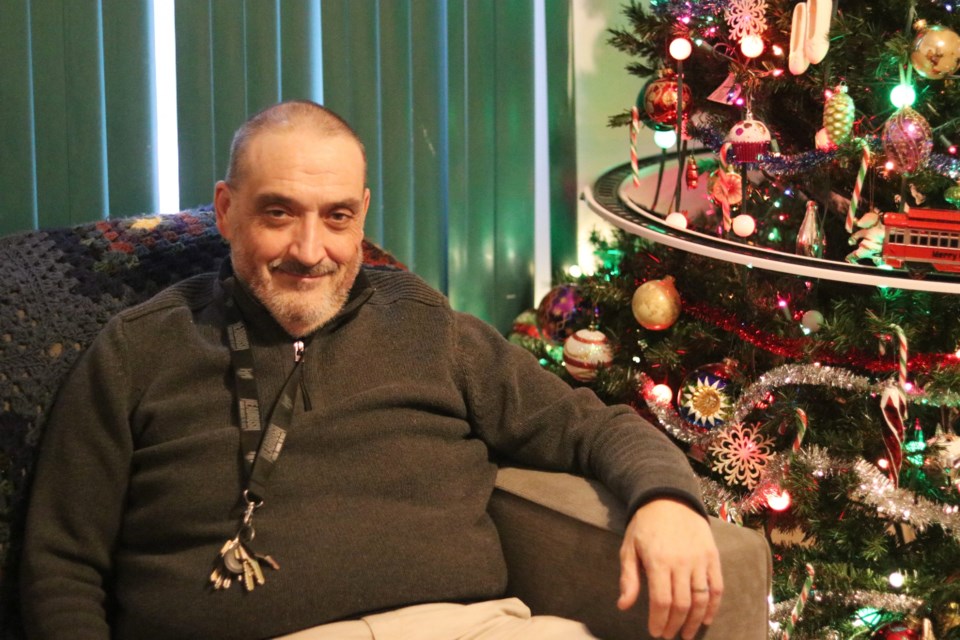Living with bipolar disorder is a fight every day to feel better and a fight against people's prejudice, says Sylvin Lacroix.
Lacroix, 52, has bipolar disorder type 2.
According to the Canadian Mental Health Association (CMHA), about one per cent of Canadians experience bipolar disorder. People with bipolar disorder can experience episodes of mania or depression which last for varying periods of time.
Lacroix mostly goes through episodes of depression. He said he can also have insomnia, paranoia and negative thoughts.
When he is depressed, just getting up in the morning can take all of his energy.
“There is that wave, up and down. When I’m in the depression section, I just don’t have energy and can’t do anything. When I’m in the hyper section, I can do everything in five minutes,” he explained. “When you’re in your high, you want to spend a lot of money, so you just have to watch that. And since I’m type 2, I’m a lot in the bottom.”
Living with bipolar disorder hasn’t been easy for him or his wife Darla, he said, because he is impatient and sometimes he can take his frustration out on his wife or his children.
What helps is giving space to each other, Lacroix said. He follows a diet and tries to start his day by working out on the treadmill. If he doesn’t exercise, he won't be able to concentrate or work, he said.
Having pets, including three cats, two dogs, three birds and fish, is another major aid in dealing with depression.
“They know when you don’t feel (good). They come to see you and they know,” Lacroix said.
Lacroix’s first depression happened at the age of 19 following a breakup. Throughout the years, he was being treated for depression but only eight years ago, he was diagnosed with bipolar disorder type 2.
In the past 10 to 12 years, he’s had four major episodes of depression, some of which lasted for six to eight weeks, others for up to six months.
Since having gastric bypass surgery three years ago, it’s been rough for him because of the work, his age and because his medication dose was too high.
“You’re fighting the depression. On top of that, you fight the lack of energy. It’s just a snowball, getting bigger and bigger and bigger,” he said.
The hardest part is when people misunderstand what bipolar disorder is, Lacroix said. Many of them have misconceptions, confusing bipolar disorder with attention deficit hyperactivity disorder (ADHD) or thinking people with the disorder are lazy or crazy, Lacroix said.
Having bipolar disorder helps him understand people around him in his job. Lacroix works as a social services worker for the French public school board. For the past three months, he has been on sick leave. He said it is a frustrating situation because he is stuck at home instead of working with the students.
“(A) big part when you like your job is your self-esteem. Right now, I don’t have that. I should be doing my job instead of being at home,” he said.
He noted he’s been lucky to find help from "amazing" professionals at Centre de santé communautaire de Timmins. Thanks to the Telemedicine, he was also able to see a psychiatrist from the south very quickly while he himself was in Timmins.
“You have to make sure you have the right services. Don’t refuse the services and if they give you medicine, take it,” he advised. “Because when you stop, you’re going through withdrawal. And it’s not going to go away. You feel better but if you stop, you’re going to go back down.”
Another part of his healing process is talking openly. It took Lacroix several years to accept that he will have to live with bipolar disorder for the rest of his life, he said.
“I’m not ashamed of it. It’s part of me,” he said. “You have to be ready to accept what you have and be ready to accept the services, to take your medicine.”
Some of the mental health services available for community members in Timmins include the Timmins and District Hospital, the Canadian Mental Health Association Cochrane-Timiskaming, Timmins Family Counselling, and Ellevive.
The hospital’s crisis line is 705-264-3003 or 1-888-340-3003.



